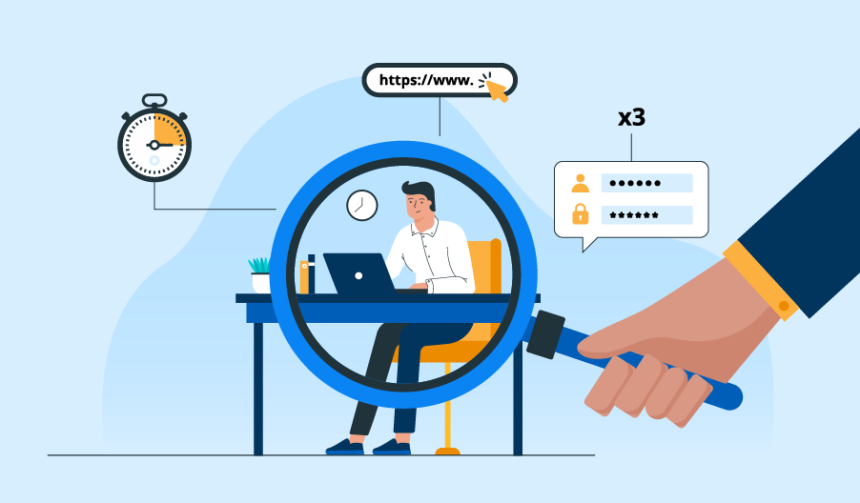For the last few years, monitoring of employees in the workplace has become more common phenomenon. With the help of technology, employers track everything from which apps employees use to the websites they visit. This practice causes mixed opinions and raises many questions, in particular, about how ethical such behavior is on the part of employers.
According to the latest data, one in five technology workers in the UK uses programs that allow them to monitor jobs. The covid pandemic, as well as the transition to a mixed type of work activity, could only strengthen this phenomenon. Today, this is commonly referred to as “productivity paranoia,” which means that managers are concerned that the deterioration in results is directly related to the fact that employees are not doing their best, despite the fact that the actual amount of time worked and meetings held has increased.
According to recent Gartner data, published in the Wall Street Journal, employee monitoring using software has doubled since the beginning of the pandemic, and 60 percent of large employers are resorting to technology to track the productivity of their workers. This raises the question: where is the line between control and invasion of personal space?
Not all employers choose this path, and some technology companies consider such methods inappropriate. There is an initiative from Efficient Lab, a software development company, which calls for an end to unnecessary tracking of employees in the workplace. Efficient Lab focuses on the need for transparency in the use of monitoring tools, stating that employers should share with employees information about what data they collect and for what purpose.
The created concept of Efficient Lab is based on the creation of trusting relationships in the digital workspace. Instead of active monitoring, employees prefer anonymous tracking, which focuses on software usage data such as visited pages and completed workflows. This way, managers can get an idea of how to use the tools and how they can be improved without creating distrust between employees.
Efficient Lab has developed a data privacy agreement that employers around the world should adhere to. The key task is to give them responsibility for using the collected data, in the interests of improving work applications and improving the efficiency of work processes. At the same time, it should be noted that the information collected covers only general indicators, in particular, page loading or the number of clicks, without taking into account the personal activity of each individual employee.
In connection with the above, a completely reasonable question arises: how can employers monitor efficiency without violating the ethical framework, as well as respecting the confidentiality of their employees? The answer may be to find a balance between the need for management and trust in your employees. The transition to transparent and ethical approaches in this matter has the potential not only to increase productivity, but also to improve the overall atmosphere in the team. Ultimately, trusting relationships are the foundation for successful work and long-term cooperation.


